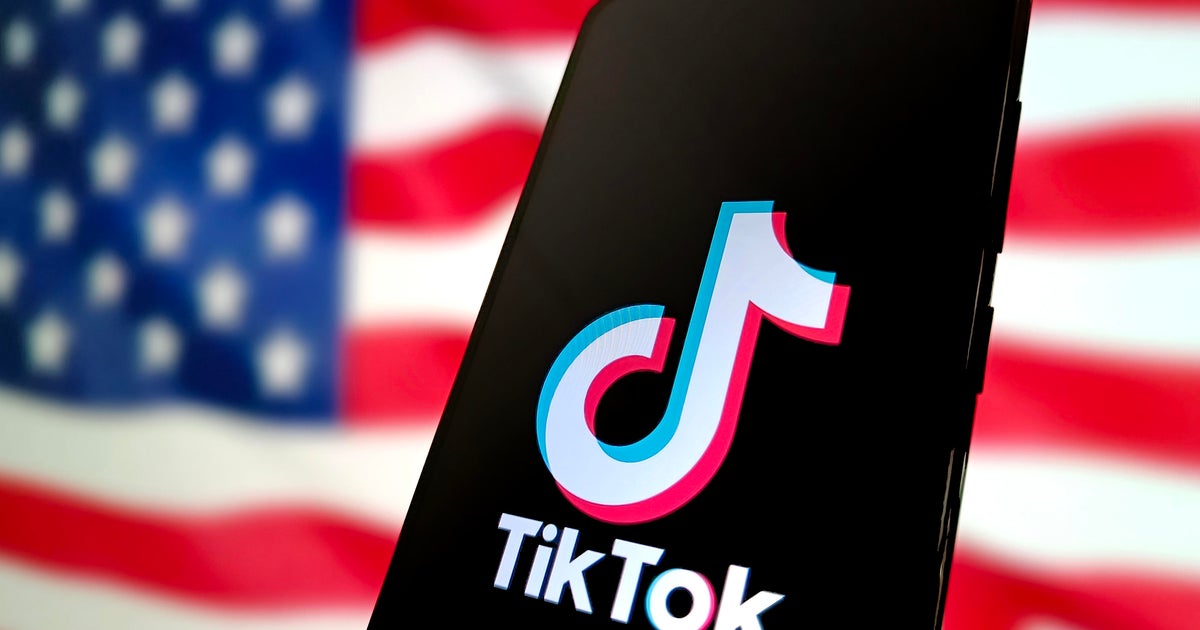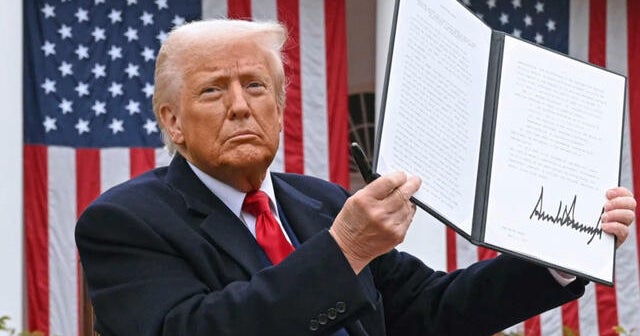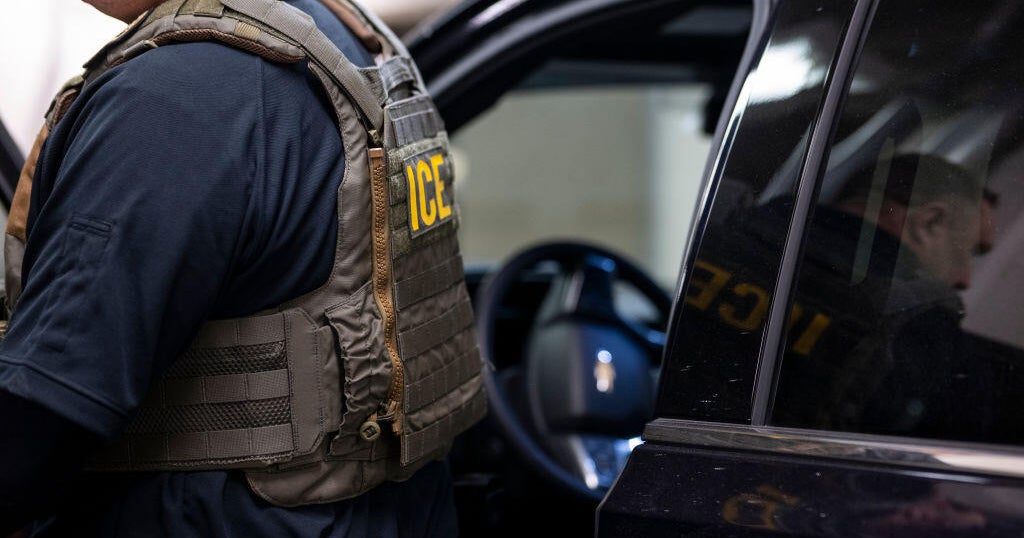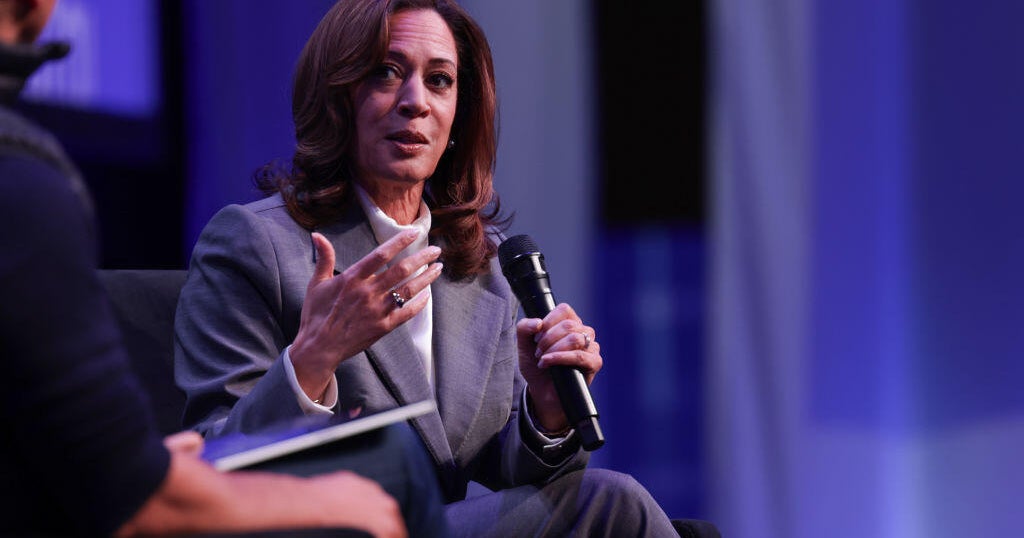Washington — President Trump on Friday said he would sign another executive order to delay enforcement of a law that effectively bans TikTok, amid talks about a possible deal to sell the widely popular platform.
Mr. Trump signed an executive order on his first day directing the Justice Department to not enforce the ban for 75 days. The order instructed the Justice Department to not take action or impose penalties against “any entity for any noncompliance.” The executive order expires Saturday, April 5.
Mr. Trump said Friday he wouldn’t enforce the law for at least another 75 days.
“My Administration has been working very hard on a Deal to SAVE TIKTOK, and we have made tremendous progress. The Deal requires more work to ensure all necessary approvals are signed,” the president wrote. “We do not want TikTok to ‘go dark.’ We look forward to working with TikTok and China to close the Deal.”
A deal had been reached Wednesday between investors, TikTok’s Beijing-based parent company ByteDance and the U.S. government that would have spun TikTok’s operations in the U.S. into a new company that was owned and operated by a majority of American investors, according to a source familiar with the plans. The deal allowed ByteDance to keep a minority stake, and Mr. Trump planned to sign an order approving the deal and allowing for a 120-day closing period.
But after Mr. Trump announced sweeping tariffs, ByteDance told the White House on Thursday that China would no longer approve the deal until issues over trade and tariffs were resolved, the source said.
Under a bipartisan law passed last year, ByteDance, originally had until Jan. 19 to divest from TikTok or be cut off from U.S. app stores and hosting services.
TikTok briefly and voluntarily shut down before the January deadline, but reinstated access to U.S. users after Mr. Trump, who took office one day after the deadline, vowed to take action.
Apple and Google did not restore TikTok to their U.S. app stores for nearly a month after Mr. Trump issued the first directive.
Even though Mr. Trump has declined to enforce the ban, the law is still on the books, and companies like Apple and Google could be penalized down the road for violations. But the law provides the authority for the restrictions to be lifted on TikTok in the event of a sale.
When TikTok challenged the law last year, it argued that it never had a choice between divestment or a ban because a forced sale “is simply not possible: not commercially, not technologically, not legally.” The Chinese government previously vowed to block the sale of TikTok’s algorithm which tailors content recommendations to each user.
In a statement after Mr. Trump’s announcement Friday, a ByteDance spokesperson acknowledged the company has been in discussions with the U.S. government about “a potential solution.”
“An agreement has not been executed. There are key matters to be resolved. Any agreement will be subject to approval under Chinese law,” the spokesperson said.
Mr. Trump suggested last month he could ease tariffs on the Chinese if they approved the deal.
“Maybe I’ll give them a little reduction in tariffs or something to get it done,” the president said on March 27. “Every point in tariffs is worth more than TikTok.”
But on Wednesday he announced he would impose a 34% additional tariff on all Chinese goods imported into the U.S.
Lawmakers, however, are likely to be dissatisfied if any deal does not fully sever ties between ByteDance and TikTok.
“If ByteDance stays involved in any way, the deal is illegal — plain and simple,” Rep. John Moolenaar of Michigan, the Republican chairman of the House China Committee, said last month.
He said a deal that allows TikTok to continue operating in the U.S. while using ByteDance’s algorithm runs afoul of the law because ByteDance would still have access to user data.
“This setup reeks of déjà vu — in 2023, through the failed Project Texas, ByteDance tried to create the illusion of better data privacy by storing Americans’ data on U.S. servers, all while ByteDance kept its grip on the platform. On the surface, shifting data storage to the United States might have seemed like a reasonable fix, but it ignored the real issue: ByteDance’s control over TikTok,” Moolenaar wrote in an opinion piece in the National Review last month.
In 2022, TikTok began an initiative known as “Project Texas” to safeguard American users’ data on servers in the U.S. and ease lawmakers’ fears. But the Justice Department said the plan was insufficient because it still allowed some U.S. data to flow to China.
Moolenaar and Republican members of the China committee said in a statement Friday that they “stand firm” in their position.
“Any resolution must ensure that U.S. law is followed, and that the Chinese Communist Party does not have access to American user data or the ability to manipulate the content consumed by Americans,” they said. “We remain committed to enforcing the framework established by Congress to safeguard the American people.”
During a Senate Intelligence Committee hearing last year, then-Sen. Marco Rubio, who’s now secretary of state, explained that U.S. officials viewed TikTok as a national security threat because the algorithm that powers the platform is controlled by a China-based company. The Chinese government, he said, could force TikTok to give it access to the data it collects on tens of millions of Americans or use it to push propaganda to them.
“TikTok does not work without that algorithm, and that algorithm is controlled by a company that’s controlled by the Chinese Communist Party under the law of China,” Rubio said.
Three Democratic senators wrote to Mr. Trump in March asking him to work with Congress to find a long-term solution to TikTok’s survival. The senators — Ed Markey of Massachusetts, Chris Van Hollen of Maryland and Cory Booker of New Jersey — said they opposed a TikTok ban, but called it “unacceptable and unworkable” for the Trump administration “to continue ignoring the requirements in the law.”
TikTok challenged the law in court, but it was rejected by a unanimous Supreme Court days before it took effect. The Supreme Court’s decision said the divest-or-ban law does not violate the free speech rights of TikTok or its 170 million users in the U.S., agreeing with the government’s position that the platform could be used by China to collect a vast amount of sensitive information on Americans.
Jennifer Jacobs
contributed to this report.



